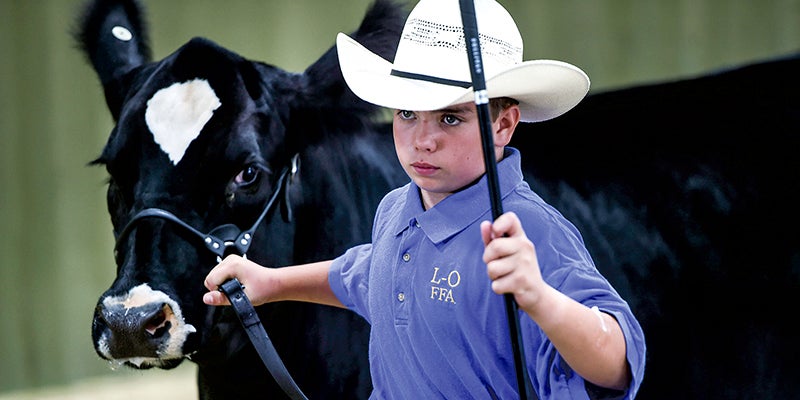From the ground up
Published 11:12 am Thursday, January 31, 2013

Grand Meadow High School ag teacher Roger Dvergsten holds his award for being named State Ag Educator of the Year by the Minnesota Farm Bureau. The Bureau also honored Dvergsten with the FFA Advisor of the Year award.
Ag educator has passion for the industry, always will
Roger Dvergsten has an eye for talented agriculturalists, which is fitting. He teaches agriculture for a living, and he has done so in different areas of Minnesota for nearly 25 years.
In late 2012, Dvergsten was honored with the Minnesota Farm Bureau’s Future Farmers of America Advisor of the Year Award, along with the Minnesota Association of Agricultural Educators Award (MAAE) for the southeast region.
Since 2000, Dvergsten has been running the ag and industrial tech department at Grand Meadow, where he teaches seventh- through ninth-graders.
“This program wasn’t even going yet,” Dvergsten said. “I got this started.”
He also teaches high schoolers part time at Lyle.

Grand Meadow ag teacher Roger Dvergsten accepts the Minnesota FFA Advisor of the Year award from Minnesota Farm Bureau president Kevin Pappe.
As part of the Farm Bureau’s award, Dvergsten was invited to the National Farm Bureau Convention in Nashville, Tenn., which was held Jan. 12 through 16. By all means, it was an enthralling experience for an ag teacher.
“It’s 56 acres under one roof,” Dvergsten said. “They had many, many things going on at one time.”
Though Dvergsten teaches for a living, even he learned about pressing agricultural issues, such as the importance of migrant workers, new technology and the Farm Bill’s safety net.
Dvergsten was particularly inspired by a doctorate student from Kentucky, and knew to bet on him for top speaking honors. That speaker earned second-place for evaluating key agricultural issues. Dvergsten felt compelled to give the young man advice, and did, as Dvergsten is a connoisseur of parliamentary procedure.
Back at school, Dvergsten has a specific model to help place students in careers that fit them. He focuses a lot of attention at the ground level, literally: soils.
“The soil and the plants are the beginning of it all,” he said.
While he focuses on his own areas of specialty, too, he blends classroom learning, FFA and real-life ag experiences with what he calls a business leadership academy. Students can study further on what interests them, and Dvergsten helps steer them in the right direction.
During the course of his career, Dvergsten has watched students filter into many sectors of the agricultural industry, including one who hated school, who became one of the most successful farmers in the state.
“I love to see what kids do four, five, six years later,” Dvergsten said.
Because of that commitment, Dvergsten along with other regional finalists of the MAAE Award, will vie for the association’s overall state award, something he has foregone in the past. But if he earns the state award this time, he will gladly accept it.
“I’ve been very humbled this year,” Dvergsten said. “I owe it to them.”
While agricultural classes may be slowly slipping out of schools, Dvergsten hopes rural-American schools can retain such programs. He knows those schools tend to produce more agriculturalists. And he sees agriculture as one of few industries in America that cannot be tampered with or ignored. He will always cherish it.
“If we value ag, we have a chance to stay on top,” Dvergsten said.




